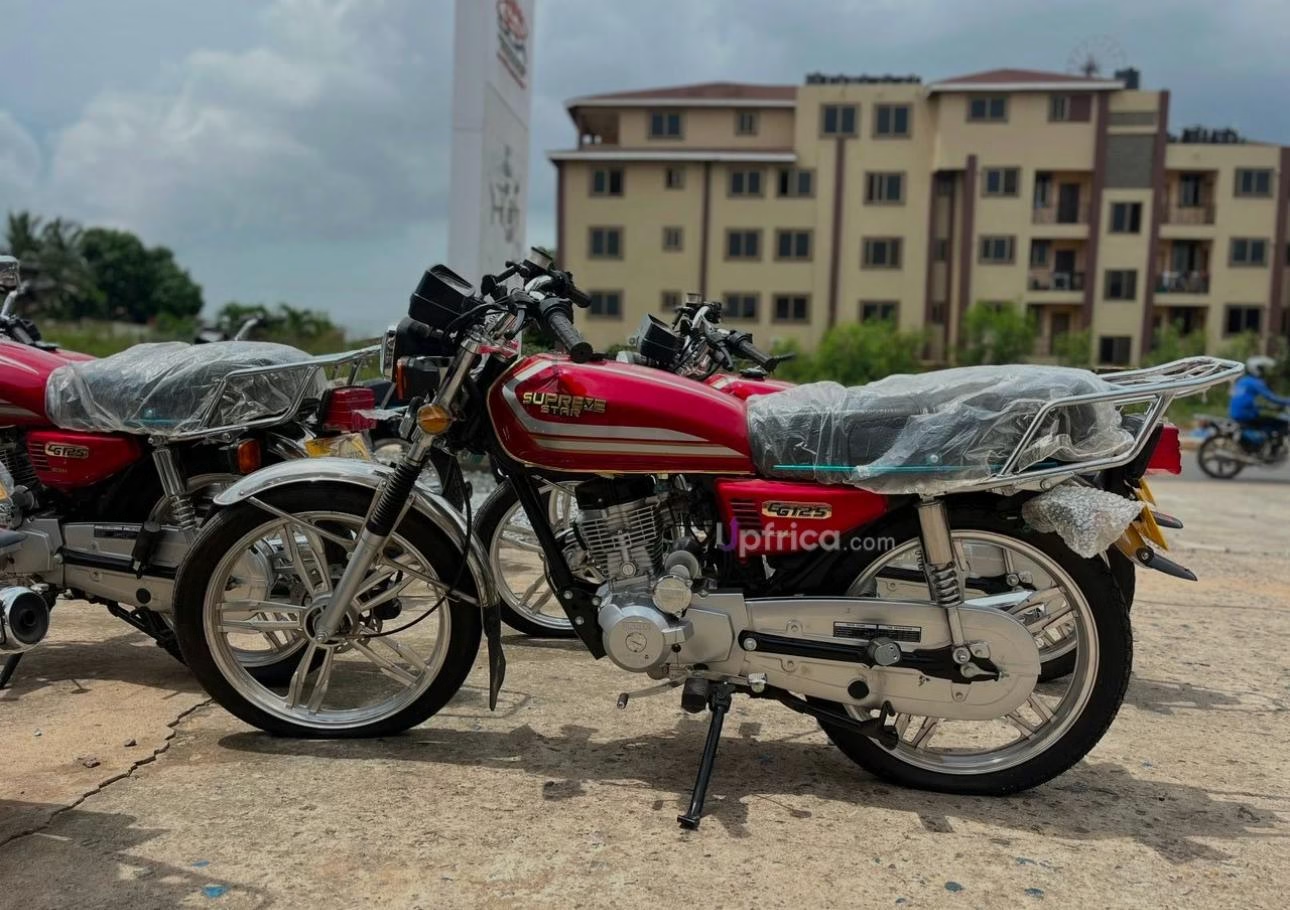As Govt Moves to Legalise ‘Okada’, Data Shows Motorbikes Driving a Deadly Share of Ghana’s Road Deaths

Ghana’s Transport Ministry is pushing amendments to the Road Traffic Regulations (L.I. 2180) to formally legalise commercial motorcycle and tricycle passenger services—popularly known as Okada and Pragyia. But a review of recent crash statistics and historic trends raises sharp safety alarms just as Parliament is being asked to change the law.
What the numbers say
Motorcycle deaths have surged over three decades: National crash records show motorcycle fatalities climbed from just 16 deaths in 1991 to 915 deaths in 2021—a staggering long-run rise that mirrors the explosion of two-wheel transport for short urban trips.
Urban toll is dominated by vulnerable road users: In Accra, vulnerable road users (pedestrians, motorcyclists, cyclists) made up 82% of all road deaths in 2023; Accra road deaths fell overall, but the burden stayed concentrated among walkers and riders. In Kumasi, pedestrians accounted for 64% of deaths in 2024 while motorbike riders contributed 24%. These patterns underscore how exposed users take the brunt of crashes.
Nationwide burden remains heavy: Police MTTD data reported 14,135 crashes leading to 2,276 deaths in 2023. Early 2024 monthly snapshots show how dominant powered two- and three-wheelers are becoming in crash tallies: in January 2024, motorbikes made up 74% of “all cycles” crashes with tricycles at 23%.
Regional signals: In the Upper East Region (2024), motorcycle crashes accounted for about 62% of road fatalities, highlighting how two-wheel transport drives deaths outside major metros too.
Research echoes the risk: Peer-reviewed and institutional studies consistently flag riders as high-risk and a growing share of victims in Ghana; a 2025 hospital-police linkage study in Accra and other analyses reinforce that motorcyclists and pedestrians dominate fatal outcomes.
The current law—and what could change
Ghana’s Road Traffic Regulations, 2012 (L.I. 2180) prohibit the use of motorcycles for fare-paying passenger services. That is the legal basis long used to clamp down on Okada. The proposed amendments now before government would reverse that prohibition and instead license, train and regulate commercial riders. Draft design elements that have surfaced publicly include a minimum rider age of 25, targeted training, and licensing rules.
The politics behind the policy swing
The NDC has repeatedly promised to legalise and regulate okada, a pledge emphasised by flagbearer John Dramani Mahama in 2024, including talk of facilitating electric motorbikes for riders.
The NPP, by contrast, publicly opposed legalisation in the 2020 cycle, with then-Vice President Dr. Mahamudu Bawumia saying an NPP government would not legalise okada. (Party figures also argued for alternatives during that debate.)
Safety red flags that demand answers before legalisation
Helmet use & night-time risk: National campaigns intensified because helmet non-use and night-time riding coincide with severe head injuries and deaths. Accra and Kumasi fatal peaks cluster after dark when visibility drops and speeding rises.
Victim profile
Fatalities skew heavily male and into working ages, amplifying economic losses and household vulnerability. Accra’s 2023 report shows 85% of road deaths were male.
System exposure
Even where total deaths fell in 2023 (Accra), vulnerable users still bore over four-fifths of losses, meaning any expansion of commercial two-wheelers without robust controls risks intensifying avoidable deaths.
What would a “safety-first” framework require?
If lawmakers proceed, international practice and Ghana’s data point to a strict checklist:
Tiered licensing & certified rider training, including defensive riding, night-riding protocols, and rainy-season modules.
Mandatory, enforced PPE (standardised helmets for riders and passengers, reflective vests) with on-the-spot fines and points.
Restricted operating windows and corridors (e.g., no-ride zones on high-speed arterials; curfews in crash-prone hours) until crash rates fall demonstrably.
Vehicle identification & insurance: visible plates/QR IDs linked to compulsory third-party insurance; rapid sanctioning for unlicensed operation. (Several proposed rules already nod in this direction.)
Data-driven enforcement with monthly public dashboards (Police MTTD + NRSA + hospitals) so Parliament and the public can see if legalisation is reducing or raising injuries/deaths.
Bottom line
Legalising okada is not just a transport choice—it is a public-health decision. The long-term trend shows motorcycle deaths soaring, urban deaths dominated by vulnerable users, and fresh MTTD numbers confirming a heavy two-/three-wheeler crash burden. Before Ghana rewrites L.I. 2180, the safety bar must be set—and enforced—much higher than our current reality. Anything less risks turning a de facto activity into a state-sanctioned casualty pipeline.
Source : Nsemgh

